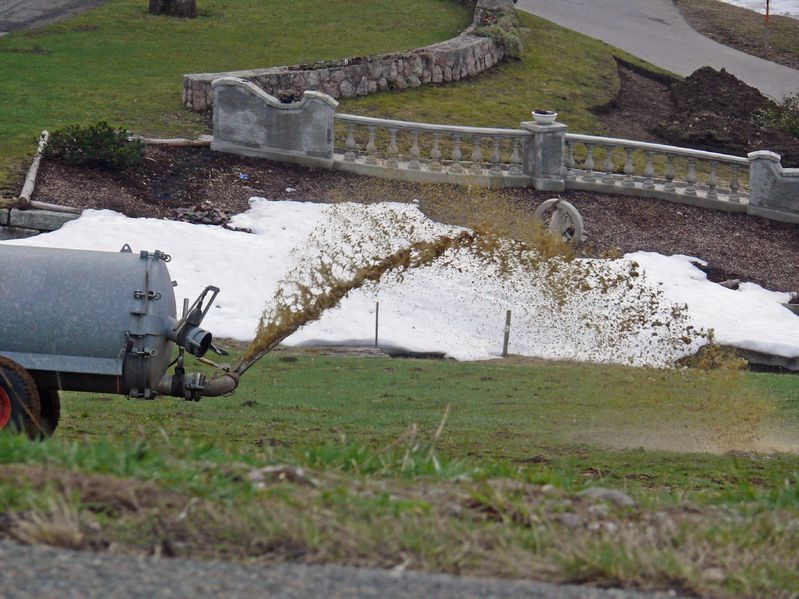
Farmers in Northern Ireland have been urged to be 'cautious' when spreading slurry due to poor ground conditions, which is preventing many from even doing so.
Northern Ireland has experienced a prolong stretch of wet weather in recent months and it is causing major problems for farmers.
“Silage hasn’t been cut. Harvest has been delayed. Cattle have had to be housed much earlier than usual and many farmers have slurry to spread but have been unable to do so, all because of the wet weather,” said Ulster Farmers Union (UFU) President, Barclay Bell.
“Farmers are reporting that slurry stores are nearing capacity and they are facing a dilemma. We have made DAERA and NIEA aware of the situation,” said Mr Bell.
Farmers have the option of using the ‘reasonable excuse’ clause for spreading slurry, which covers exceptional circumstances when, through no fault of their own, they cannot fully comply with the rules.
The UFU secured the inclusion of this clause in the Northern Ireland Nitrates Action Programme in 2005/2006.
“Given the current conditions, where weather and ground conditions are making compliance impossible, farmers may be forced to use this clause. But documentation may be required and this must be available,” said Mr Bell, adding that the UFU can assist farmers with this process.
However, European Commission officials do have concerns about the current rules. They have scrutinised the monitoring of spreading practices and water quality data.
“The UFU is well aware of the practical problems facing farmers, but it is vital not to give the Commission an excuse to impose more legislation. Being able to show we acted responsibility is our best defence,” said the UFU president.
“Brussels will be keeping a close eye on closed period compliance and could demand extra storage if farmers are continually struggling. The industry cannot afford to have more restrictions or additional storage requirements imposed.”
